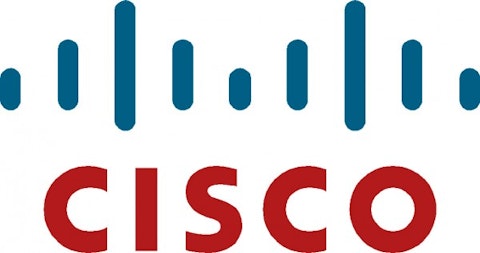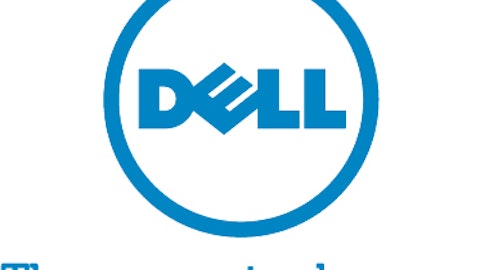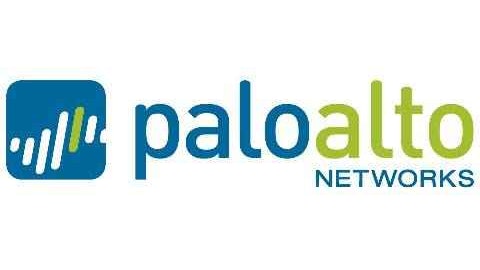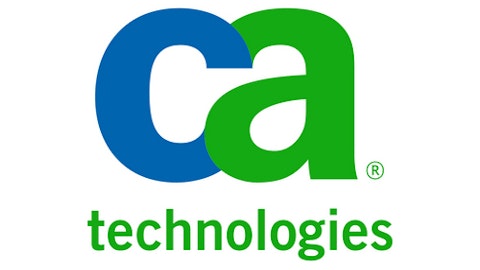Cisco Systems, Inc. (NASDAQ:CSCO) is the architect of the internet. It produces the routers and switches without which there would be no internet. With an ever growing demand for high-speed internet traffic, Cisco Systems, Inc. (NASDAQ:CSCO) is well-positioned to satisfy that demand. In addition, the rise of internet video means that someone has to handle the higher bandwidth requirements. Bigger networks mean more routers and switches. Much of that new spending winds up in Cisco Systems, Inc. (NASDAQ:CSCO)’s pocket.

The opportunity
Back in the year 2000, Cisco Systems was the most valuable publicly traded company in the world. Its market cap was more than $500 billion. Mr. Market fell deeply in love with Cisco Systems, Inc. (NASDAQ:CSCO), sending it to a peak valuation of 155 times earnings. But since then, shares have lost about 70% of their value. Cisco’s business has become better, and its competitors such as Hewlett-Packard Company (NYSE:HPQ) and Alcatel Lucent SA (ADR) (NYSE:ALU) are almost invisible. At today’s price, Cisco Systems, Inc. (NASDAQ:CSCO) is a great buy for the following reason:
- It has a fortress-like balance sheet. The company currently has $8.8 of cash per share. This means that a third of each share is pure cash. That’s a hefty margin of safety.
- It dominates its sector – It owns 75% of the market for enterprise routers, which are used by large corporate clients, and it controls more than 65% of the Ethernet switch market. This strong dominance leads to inherently high barriers to entry for newer rivals. Contrast that to Hewlett-Packard Company (NYSE:HPQ) and Alcatel Lucent SA (ADR) (NYSE:ALU) — both of which don’t dominate any field. In fact, both are money-losing businesses. In 2012 alone, Alcatel lost a staggering $1.9 billion, while HP lost $12.5 billion. You could literally launch a Fortune 500 company just from these losses.
- Cisco is very cheap on an absolute level. It currently trades at a forward price-to-earnings of only 11.6x. That’s way cheaper than the average P/E of 18x of the S&P 500. And for that price, you receive a company with a 22% net profit margin. Hewlett-Packard Company (NYSE:HPQ) and Alcatel Lucent SA (ADR) (NYSE:ALU), on the other hand, boast a negative profit margin of 11% and a 15%, respectively.
How to take advantage of this opportunity
Investors can do one of two things — they can either buy the stock in the open market, or they can sell put options and pocket fat cash premiums on this trade. As of this writing, shares of Cisco Systems, Inc. (NASDAQ:CSCO) are trading at $24.60 and the January 2014, $24 strike puts are selling for $165. This translates into an immediate 6.9% gain on your investment by waiting six months until the January 2014 expiration.
To put it differently, investors can act as an insurance company and collect a premium of $165 for each option contract they sell. This contract, in turn, obligates them to buy shares of Cisco on the expiration day of January 2014 if shares are trading under $24. Repeat this trade two times a year, and you will have a 14% return annually.
How this plays out
There are three different scenarios that can happen on expiration day on January 2014:
- Share price of Cisco> $24: You get to pocket the premium and have no obligations.
- Share price of Cisco= $24: You get to pocket the premium and have no obligations.
- Share price of Cisco< $24: You get to pocket the premium, but you will also be obligated to buy the shares at the predetermined price of $24. Since this is an excellent price to pay for the shares, we are fine with that obligation. Of course, you need to adjust the number of shares you are obligated to purchase to the trading position size that is right for you. This rule applies to any trade you make, regardless of the use of options .
Mr. Buffett is right beside you
The practice of selling put options on selected stocks and indices has been mastered by Warren Bufett. Many investors may not know this but Berkshire Hathaway Inc. (NYSE:BRK.A) sells options, all the time. You see, it only makes sense for an insurance company to receive fat cash premiums for the obligation to purchase shares in the future for a predetermined price.
For example, in the 2012 annual letter, Buffett stated that Berkshire Hathaway Inc. (NYSE:BRK.A) sold long-term puts on four leading stock indices in the U.S., U.K., Europe, and Japan, for a total float premium of $4.2 billion. In addition, Berkshire Hathaway Inc. (NYSE:BRK.A) earned in excess of $1 billion for writing puts on high yield corporate bonds. Mr. Buffett states that:
“All told, these derivatives have provided a more-than-satisfactory result, especially considering the fact that we were guaranteeing corporate credits – mostly of the high-yield variety –throughout the financial panic and subsequent recession.”
The Foolish takeaway
I recommend that you sell to open the Cisco January 2014 puts, at the $24 strike price, for no less than $155 an option.
The article An Opportunity to Make 14% a Year on Cisco originally appeared on Fool.com and is written by Shmulik Karpf.
Shmulik Karpf has no position in any stocks mentioned. The Motley Fool recommends Berkshire Hathaway and Cisco Systems. The Motley Fool owns shares of Berkshire Hathaway. Shmulik is a member of The Motley Fool Blog Network — entries represent the personal opinion of the blogger and are not formally edited.
Copyright © 1995 – 2013 The Motley Fool, LLC. All rights reserved. The Motley Fool has a disclosure policy.




